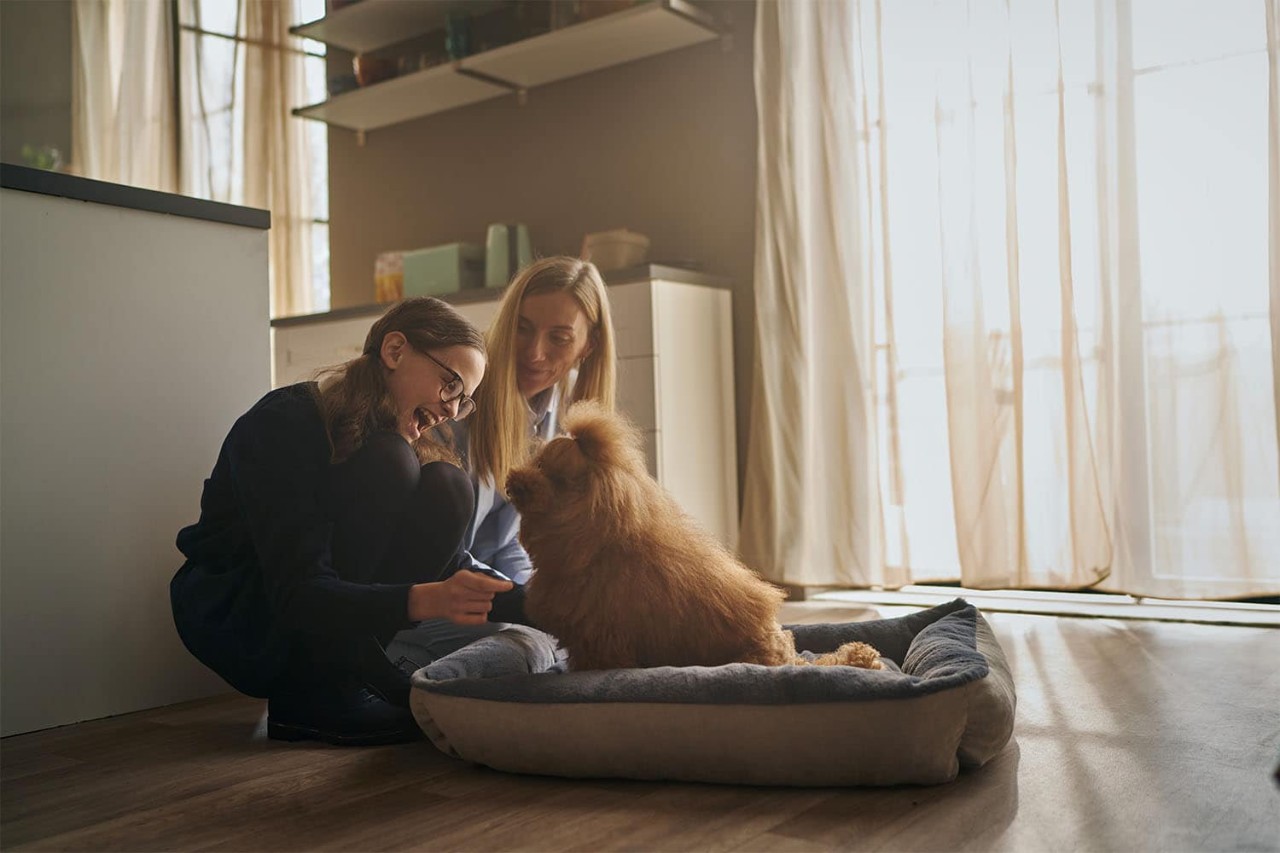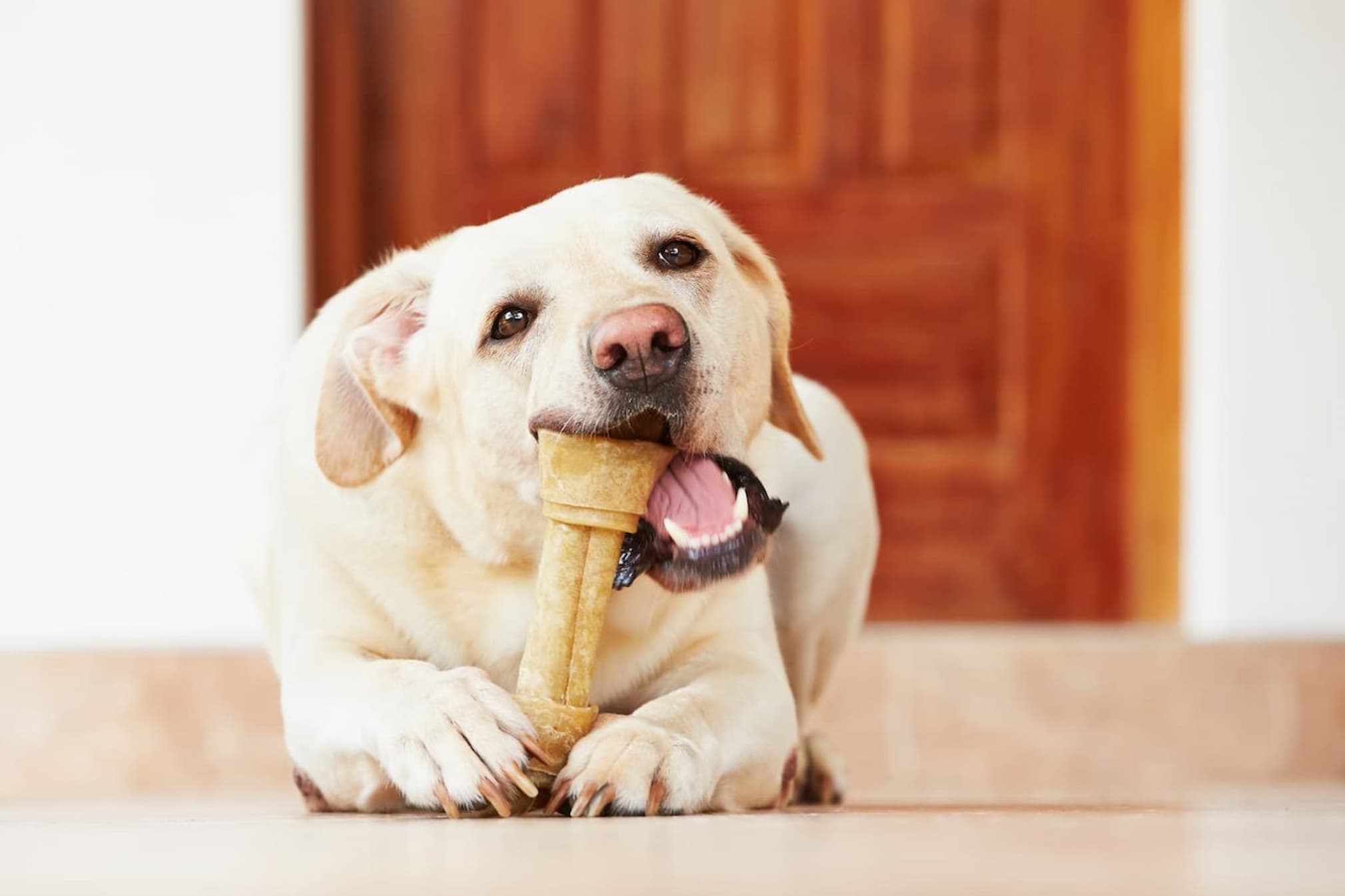losses that may arise from any reliance upon the information contained in this guidance.
Recognising and preventing obesity in pets
by Angela Hickey | 3 min read October 18th, 2021
What is Obesity?
Obesity is defined by the Royal Society for the Prevention of Cruelty to Animals (RSPCA) as “excess body fat that is enough to impair the health, welfare and quality of life of a pet.” It results from an imbalance in energy intake over energy expenditure. It is of great concern as overweight pets are at higher risk of illness and have a reduced lifespan.
What factors contribute to excessive weight gain in pets?
Breed – some breeds are more sedentary and will more easily gain weight whereas others are active and expend a lot of energy. Always choose a breed that suits your lifestyle and be sure you can provide sufficient exercise and play.
Age – obesity increases with age and is most common in middle aged and elderly dogs.
Sex – females tend to be more obese than males
Neutering – there is a higher incidence of obesity in neutered pets so be sure to look at the diet and activity levels of your pet after neutering and get advice from your vet about maintaining a good weight.
Diet – Meals need to be fully balanced nutritionally and appropriate portions fed based on the age, size, weight and activity levels of your pet. Your vet can advise you on good quality complete foods and the correct quantities to feed. Feeding scraps of human food and excessive treats will add to the calorie intake of your pet and increase the risk of obesity.
Exercise – Walks, games, playful activity and training are really good to use up energy and also to keep your pet happy, performing their natural behaviours in the outdoors and also bonding with you.
Owner – we need to be aware of the risk of obesity and be proactive in managing our pet’s food intake and activity levels. Our compliance is vital in dealing with obesity in our pets – we need to commit to whatever plan our vet suggests to bring our pet back to a healthy weight and maintain them at that weight.
Risks associated with obesity:
- Osteoarthritis
- Diabetes Mellitus
- Heart Disease
- Respiratory Disease
- Heatstroke/ less heat tolerance
- Feline Hepatic Lipidosis (‘fatty liver’ in cats)
- Feline Lower Urinary Tract Disease
- Hypertension
- Decreased ability to perform natural activities
- Decreased life span
How do I know if my pet is obese?
Obesity will cause an increase in your dog’s weight and changes in their basic healthy shape, which can be assessed using the Body Condition Score. Your vet or vet nurse will weigh your pet and show you how to measure their score. A score system of 1 to 5 is usually used, with ‘very thin ‘ being scored at one, and ‘obese’ being scored at five. A score of three is ideal.
The score is based on running your hands down on each side of your pet’s body from head to tail and seeing if you can easily feel the ribs, backbones and hip bones. Then feel over the base of your pet’s tail to see if there is a pad of fat building up there. Then look at the shape of your pet’s waist. Is it smooth, curved and tucked in? Or does it bulge out? Is your pet’s back broader than it should be?
Your vet will help you to recognise the signs of obesity in this way.
What can I do if my pet is obese?
If your pet is obese it is important to take measured action right away. Your vet will advise you on how to manage your pet’s diet and exercise levels and create a realistic plan that works for you, your pet and your family. Your vet may also advise some tests if they suspect that there might be a medical problem contributing to your pet’s weight gain, such as Hypothyroidism or Cushing’s Disease, that may need treatment. For most pets this is not the case and ‘Eat Less, Move More!’ is what is prescribed.
Your vet will advise a suitable complete food that will suit your pet and provide all nutritional needs but less calories. Exact weighing of your pet’s meals and minimal treats will be needed alongside adequate exercise and activity each day. A gradual weight loss that is sustainable in the long term is the goal. Regular trips to Nurse Clinics at your vet practice for ‘weigh-ins’ is a great idea to help keep you motivated and committed.
Increased activity is also important so build in daily walks and play time with your pet. Both you and your pet will be happier and healthier as a result – and vet’s bills will be much lower if you can help your pet maintain a healthy weight!
losses that may arise from any reliance upon the information contained in this guidance.






